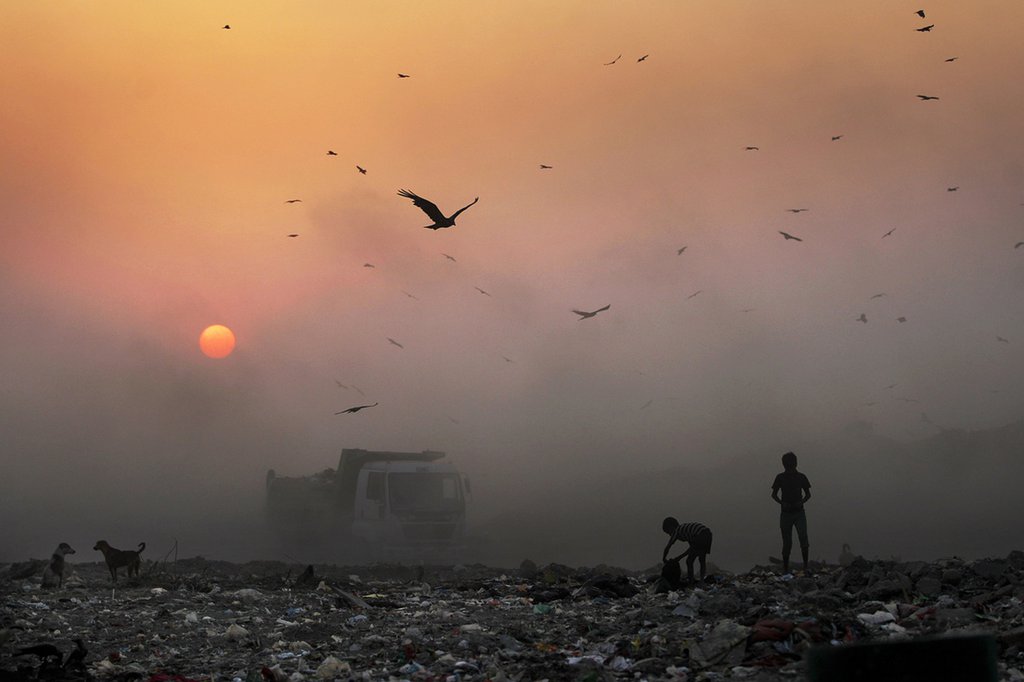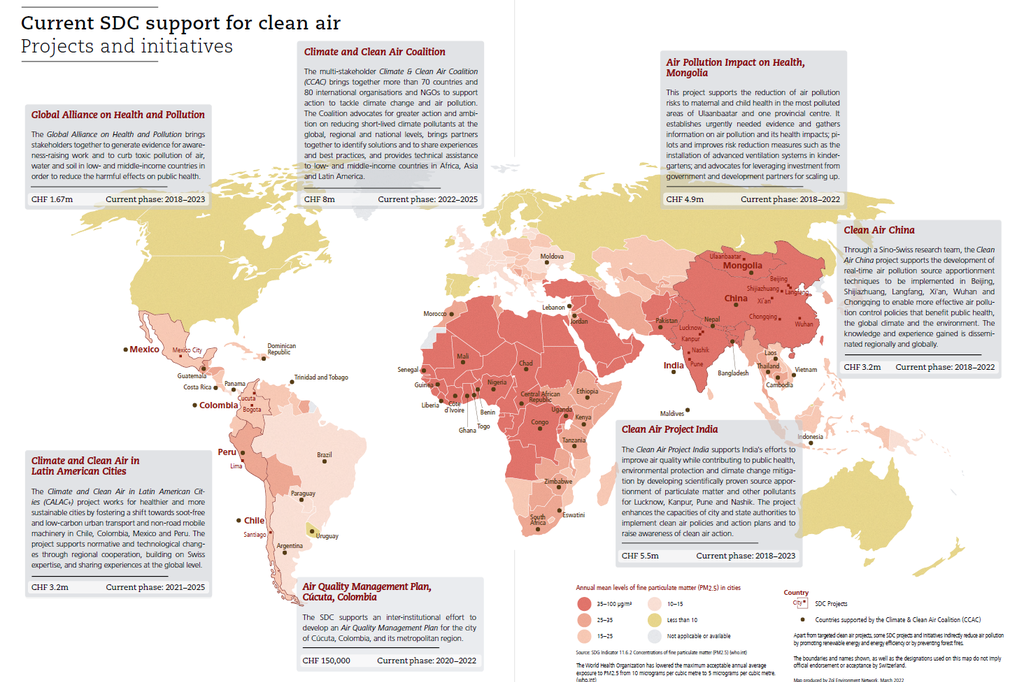Air pollution threatens health, climate, and the environment. The Swiss Agency for Development and Cooperation (SDC) is committed to reducing pollution in development cooperation. INFRAS has summarized its engagement in a brochure.

Even if some progress has been made in reducing air pollutants – air pollution remains a global challenge. Great effort will be required to attain the World Health Organization (WHO) global air quality guidelines, which were revised in 2021. INFRAS has written a brochure on behalf of the Swiss Agency for Development and Cooperation (SDC) that highlights the relevancy of air pollution control policies and measures in development cooperation – and that also provides a summary of the SDC air pollution control portfolios in its partner countries and regions.
Air pollution hits low- and middle-income countries and vulnerable populations the hardest
Air pollution threatens health, climate, and the environment: nine out of ten people in the world breathe air with pollutant loads that exceed the WHO guidelines. People in nations with low and average incomes as well as vulnerable groups such as women and children are particularly hard hit. Approximately seven million people all over the world die prematurely every year due to the effects of air pollution. The economic burden of air pollution is enormous: it is estimated that the cost of air pollution amounted to approximately 6.1 percent of the global gross domestic product in 2019.
The brochure shows how the SDC provides global support
The INFRAS brochure shows how the SDC, together with partner organizations, supports projects all over the world that contribute to the improvement of air quality – and thus also contribute to meeting the UN sustainability goals.


